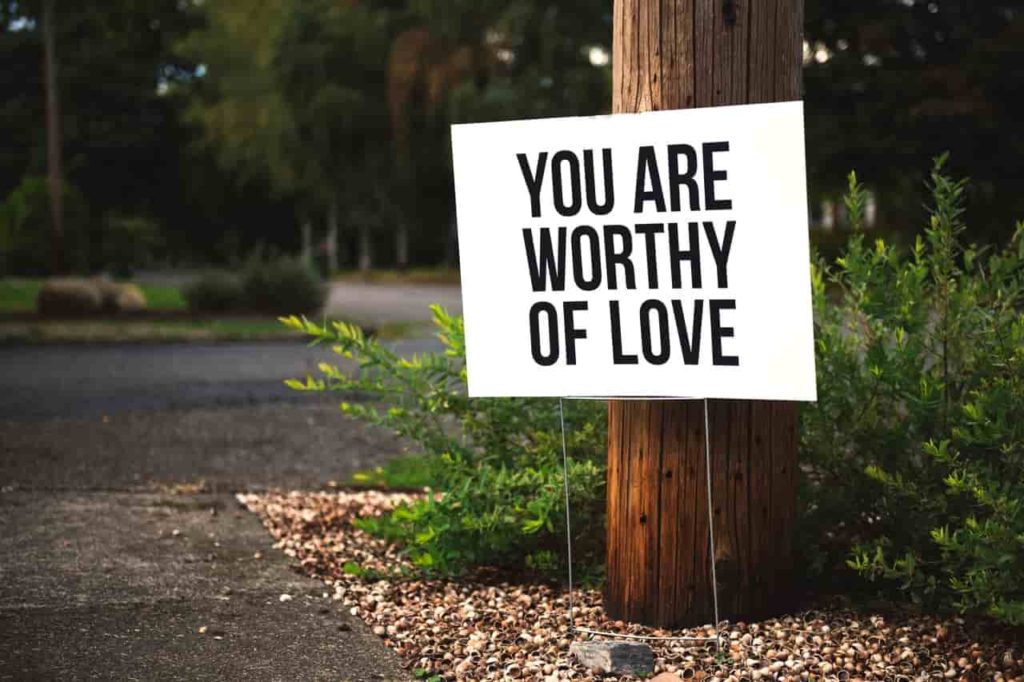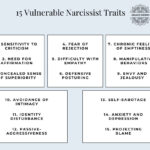How To Stop Being Codependent With A Narcissist
5 Step Guide
Are you a codependent in a relationship with a narcissist and feel exhausted due to their highly demanding personality?
Do you find it hard to say no to people even if it is inconvenient for you?
Are you always taking care of others neglecting yourself along the way?

This 5 step guide on “How to stop being codependent with a narcissist” will help you relieve yourself from your exhausting relationship.
If you’re interested in healing from narcissistic abuse, I warmly welcome you to my Narcissistic Abuse Recovery Program. It’s an easy self-paced online course which you can do at your own pace. My signature program combines scientific and spiritual tools for holistic healing of the body, mind, and spirit.
5 Steps to stop being codependent with a narcissist
I know that this is extremely challenging as it seems like it’s your own nature to have people pleasing tendencies. But becoming aware of this means that you can change to protect yourself, and stop narcissists from taking advantage of you.
If you want to learn more on how to stop being codependent with a narcissist, you can seek guidance and support through therapy with a licensed professional.
Meanwhile, check out this 5 step guide to help you overcome your codependency tendencies with your narcissist.
1. Stop focusing on how to help the narcissist.
It’s important to understand that you cannot help a narcissist. No amount of unconditional love, empathy or acceptance can heal them. It’s extremely difficult for a narcissist to change. First they would need to acknowledge and admit that they have a problem.
This is very rare, as narcissists fail to admit any wrong doing. They perceive themselves as above standard with a sense of grandiosity. Don’t be surprised if they admit that they have narcissistic tendencies and perceive them as an advantage by being superior to others.
A very low percentage of narcissists end up going to therapy to change their behavioral patterns. And this is after hitting rock bottom and realizing that their personality is causing them a lot of harm or problems in their personal lives.
Moreover, the success rate of narcissists getting better after therapy is extremely low. Most of them either stop going to therapy or find it too difficult to change their behavior.
Related: 12 Traits of a Narcissist
2. Focus on yourself

Imagine if the amount of time and energy you spent thinking on how to help the narcissist, you dedicated it for yourself!
If you want to stop being codependent with a narcissist, you have to start making yourself a priority. Being in a relationship with a narcissist is exhausting and you end up losing touch with who you really are. You become so focused on making the narcissist happy that you forget what makes you happy as an individual.
Take some time in a quiet place and reflect on what you like to do.
- What makes you happy?
- How do you like to spend your time?
- What goals do you have in life?
- What would you like to achieve?
- Are there any hobbies or activities you ever wanted to try?
Perhaps you always put them aside as you are always dedicating time for others but not for yourself.
Now its’ time to start! If you want to stop being codependent with a narcissist, you must strengthen yourself and become self-reliant. Practice codependency affirmations to empower yourself and strengthen your sense of autonomy. They work wonders!
Related: How To Break Codependency | Am I enough?
3. Practice being assertive
Learning how to say “no” to people is essential. If you struggle to say no to your narcissist, start by practicing with others. The next time someone invites you to a party, or asks you to do a favor which is inconvenient for you, politely decline.
Assertiveness is a skill, so just like any other skill, the more you practice it, the better you will be at it. Eventually it will come naturally to you.
By practicing assertiveness, you are learning how to stop being codependent with a narcissist. When you’re in an abusive relationship, you get used to being submissive. If you don’t start standing up for yourself and communicating your need and emotions, people will easily take advantage of you.
I know that this might feel uncomfortable as these tendencies are developed from childhood upbringing. The way our parents and caregivers attend to our needs and emotions during infancy, affects how we relate to our own feelings as we grow older.
This also affects how we interact and communicate in romantic relationships. We unconsciously develop attachment styles that define what kind of people we are attracted to later on in life.
Keep in mind that communicating your needs and emotions is not being selfish. Honor your needs and emotions by expressing yourself. Your voice, your feelings, and your opinion matter!
4. Set solid boundaries
Establishing healthy and solid boundaries is key to stop being codependent with a narcissist. However, this is a tricky one so pay attention and read carefully!
Narcissists are masters of manipulation and they disrespect other people’s needs, feelings and boundaries. So setting boundaries with a narcissist can be quite challenging.
This doesn’t mean that you should be submissive and accept everything. Setting healthy boundaries is a way of dignifying your sense of self, values and principles. If you allow people to step over you boundaries, it’s a sign that you don’t know your self worth and value.
If something bothers you or makes you feel uncomfortable, you don’t need to seek approval from other people to validate your feelings. Remember that people have different tolerances, principles and values. So what’s acceptable for your friend, doesn’t mean that it’s acceptable for you too. And that is okay! We are all different and unique.
Embrace your integrity and be true to yourself!
Related article: When The Narcissist Dumps The Codependent | Self Healing From Narcissistic Abuse
5. Practice self-love and self-care

When was the last time you did something nice for yourself?
Codependents have so much love to give to others, but they forget to give some of that love to themselves. No wonder narcissists target codependents!
Loving yourself is a vital step to stop being codependent with a narcissist. A major key which makes you a codependent is loving others more than you love yourself. Don’t be too hard on yourself and feel guilty about it. This is usually a result of your upbringing. But the good news is that it’s never too late to change.
To practice self-love and self-care, start with some easy steps like:
- taking some time for yourself to just “BE”
- cooking yourself a nice healthy meal
- spoiling yourself with a nice gift
- attending a class or enrolling in a course which you find interesting
Learn more about “what it means to really love yourself“.
Breaking free from being codependent with a narcissist
Codependents usually have fear of abandonment in relationships which makes it even harder for them break free from abusive relationships.
To make things worse, narcissists are codependents themselves, they just have different behavioral patterns. So when a codependent leaves a narcissist, they go through a lot of drama as the narcissist makes it hard for them to move on by love bombing them.
It’s crucial to understand that the narcissist tries to lure a codependent back into the relationship not out of love. But because they need them for narcissistic supply, and to continue attending to their needs whenever they please.
If you really want to stop being codependent with a narcissist, the BEST way is to leave the relationship and start working on healing yourself. It takes great courage and strength to leave an abusive relationship after suffering from narcissistic abuse as the effects are truly damaging. However, healing and being happy in life is possible!
Keep in mind that you DESERVE BETTER. If you are a codependent and you choose to stay with a narcissist, you are condemning yourself and choosing an unhappy, turbulent path which will lead to more suffering.
You owe yourself a better life and a better future. You deserve to be happy, respected and loved for who you are. Get the support you need, surround yourself with good friends and family, and work on the relationship you have with yourself. That is the most important relationship to work on!
My Related Services:
–Narcissistic Abuse Recovery Program: Join a structured program that provides tools, resources, and guidance to help you navigate and heal from the impact of narcissistic abuse.
–Mindfulness Meditation Practice: Discover the power of mindfulness with me as your meditation teacher. This practice has been a transformative tool in helping me gain mental clarity, rebuild self-trust, and respond consciously rather than reacting impulsively. Book a free call today and learn how mindfulness can calm your nervous system and bring peace into your life.
–Email Advice: Get guidance, insights, and support directly to your inbox.
FAQs
To stop being codependent with a narcissist follow this 5 step guide:
-stop focusing on helping the narcissist
-start focusing on yourself
-practice being assertive
-set solid boundaries
-practice self-love & self-care
Codependency on a narcissist can occur due to various factors, such as low self-esteem, a history of trauma, or a need for validation and approval. It often involves an unhealthy dynamic where one person excessively relies on the narcissist for emotional support, while the narcissist thrives on control and admiration.
While codependents often find themselves in relationships with narcissists, not all codependents are with narcissists. Codependency can manifest in different types of relationships, including those with individuals who are not narcissistic. It’s essential to recognize the patterns and dynamics of codependency to address them effectively.
Related articles which you might find helpful:
How To Heal From A Narcissistic Relationship
How To Get Over A Trauma Bond
What Is A Narcissistic Abuse Cycle?
Trauma Bonding With Narcissists
Interdependence VS Codependency
Codependency Triangle In Narcissistic Relationships
Narcissistic Personality Disorder Statistics | 2022






